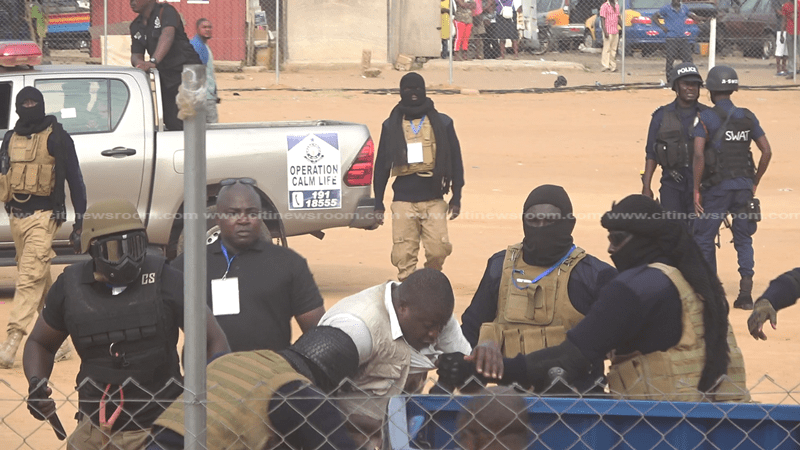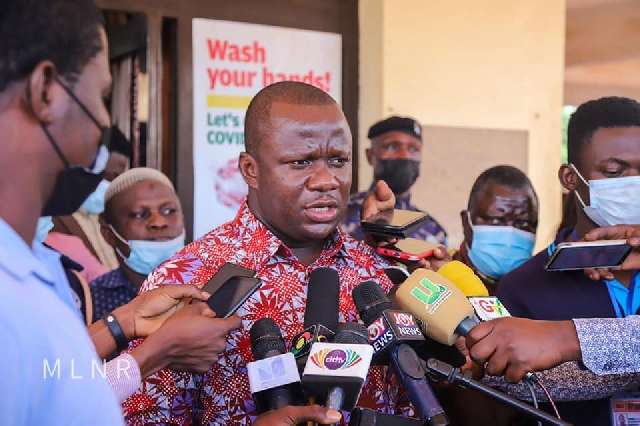For years, the state has tried unsuccessfully to stop the activities of landguards. These groups of individuals work ostensibly to protect people’s land against encroachment. In the past, land guards have been accused of land grab, theft, extortion racketeering, and in worst-case scenarios, murder.
Moreso, the landguards are not a monolithic group. They are a loose network of multiple groups and gangs with some sort of defined turfs and roles within the larger fraternity. As such, the possibility of rivalry and the risk of conflict cannot be discounted. The situation sometimes results in violent clashes with the use of guns, knives, and cutlasses as their preferred weapons.
The broad security implications of their activities are not lost on the minds of security experts and operatives. It was with grave concern that they received the news that a state institution had hired the service of well-known landguard, Clement Gyato and his company, Aynok Holdings Limited; a registered liability company to protect state lands and further assist in reclaiming others from encroachers.
The Grave Concern
When the news broke out that the Ministry of Lands and Natural Resources (MLNR)had engaged the service of a landguard to protect State lands, people were baffled. The minority in Parliament raised its objection to the arrangement and invited the sector minister for questioning. In voicing his concern, the member of Parliament for Tamale North, Alhassan Sayibu Suhuyini condemned the decision as illegal alluding to the law, specifically, Vigilantism and Related Offences Act, 2019 (Act, 999)
Alhassan Sayibu Suhuyini-MP Tamale North“Resorting to the services of people whose services have been outlawed for the protection of government lands came to us as a surprise”.
He further states “When we pass laws to sanitize any area or development in our country, we do not expect the state to be the first to break those laws and this is unacceptable,” In addition to MLNR, he mentioned Ghana Armed Forces and Ghana Police Service as other state institutions that engage in this regrettable practice.
However, in defending the decision, the Chief Director of the Ministry, Prof. Patrick Agbesinyale, reiterated that it wasn’t his ministry that was involved, “However the Ministry, through its agency, Lands Commission, legally engaged the services of Aynok Holding Limited, a registered limited liability company, to assist in reclaiming encroached government lands”. While many security analysts question the wisdom behind the decision, Kwame Gyan, a legal practitioner, argues that it is legal. “allowed by section 3 of the Public Lands (Protection) Decree, 1974 (NRCD 240) to either take steps themselves to remove trespassers or appoint duly authorized agents to do so on their behalf.”
Meanwhile, the sector minister, Samuel Abdulai Jinapor disclosed that the Government has revised the agreement and now gives the company 15% of reclaimed lands as compensation.

Security Implications
The security implication of this decision cannot be overlooked. If illegal activities can be “regularized” through pseudo arrangements to enjoy state backing, citizens must be alarmed. Landguardism is now disguised as real estate and given “officialdom”. As it stands, these groups now enjoy state protection through political party patronage.
Known landguards constitute the core of both the National Democratic Congress and the New Patriotic Party’s security outfits. In return, they enjoy “state” cover. In 2017, Delta Force, an NPP-affiliated group stormed the Kumasi High Court to free 13 of its detained members. Despite the gravity of their action, the final punishment was like “a tap on the back”; a few months of incarceration and some fines.

Furthermore, during the bye-election in Ayawaso Wuogon Constituency, violence was ostensibly perpetrated by operatives of National Security but the disposition and modus Operandi of the team looked more like landguards than that of a trained State Institution.
It is in response to that mayhem, and the dangers posed by landguards, that the Vigilantism and Related Offences Act, 2019 (Act, 999) was passed. For a state agency to hire the service of such groups in any form, regardless of the purpose, should Ghanaians not be worried
Read More: EC’s Role in Resolving Security Concerns for December Election




















